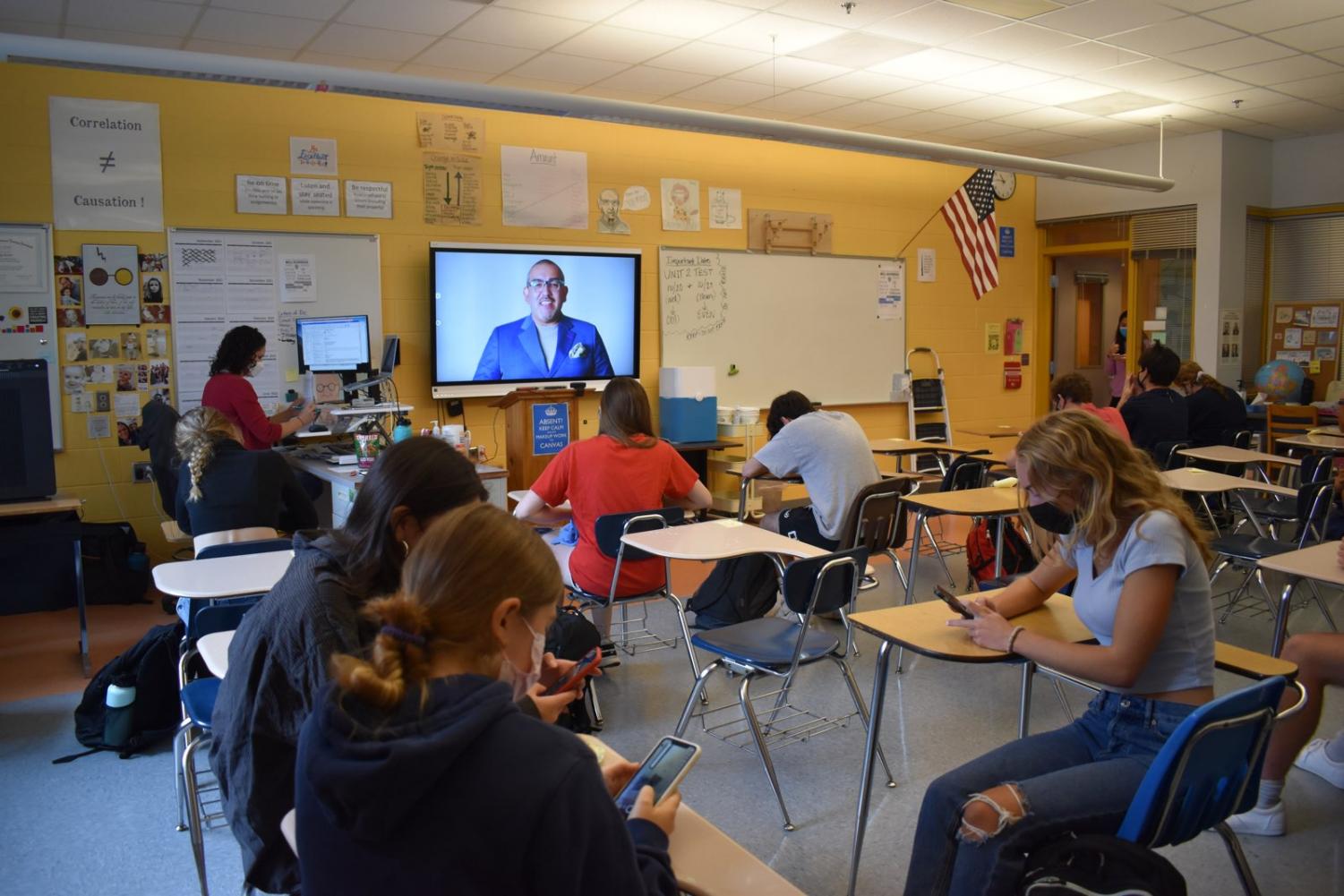Every Monday, students are subjected to hearing their Patriot Period teacher drone on about subjects deemed important by our school. Whether that adult teaches Spanish, English, math or science, they instruct on subjects they are not trained in. This includes topics of equity, mental health and other sensitive matters. Monday advisory is not a helpful or efficient addition to the school day. This time would be better spent doing homework or taking a break at the beginning of the strenuous school week.
Students in the classes of 2022 and 2023 can recall three different eras of Patriot Period. In the 2019-2020 school year, Patriot Period occurred twice per week, and students were expected to stay in their assigned classrooms unless they had a pass to see another teacher. Last year, kids sat in bed for 30 minutes every Monday, most of them ignoring their teacher giving a lesson that they did not design. These models have been somewhat combined to create this year’s schedule. After advisory on Monday, students have the freedom to spend their Patriot Period however they would like on Tuesdays through Fridays.
The goal of advisory periods is to make sure that each student has one adult at school who knows them well and can help them succeed. This idea is potentially beneficial, but, at our school, the application has been flawed. Putting 15 students in a room with a teacher most of them have never met before does not lead to deep conversations.
This is not to say that these dialogues should not be encouraged. About a decade’s worth of news has occurred over the past year and a half, most of it being unpleasant. School should provide extra support and counseling for teenagers whose lives have been flipped upside down due to the pandemic and other upsetting events. Yet, kids need to be educated by informed adults, not any random teacher who can read bullet points off a slideshow. Instead of stretching our teachers thinner, our school should enlist mental health professionals to speak on that genre of issue.
Furthermore, students have had the gumption to find their own ways to gather through difficult times. Clubs such as Students Against Sexual Assault (SASA) initiated a walkout after our school’s response to issues of sexual harassment caused discontent among students. This is a prime example of students supporting each other without prompting from our school.
It is worth noting that kids with common interests are able to gravitate towards each other in extracurricular activities such as clubs and sports. This option is not available in Monday advisory class since the classes are randomly assigned. More productive conversations occur when students are able to converse with those they know and can relate to.
The Monday advisory setup is frustrating for both students and staff — teachers shouldn’t be expected to educate a population of teenagers on a topic they aren’t trained in. The subjects covered in advisory are key for success, but the medium is just as important as the message.







































